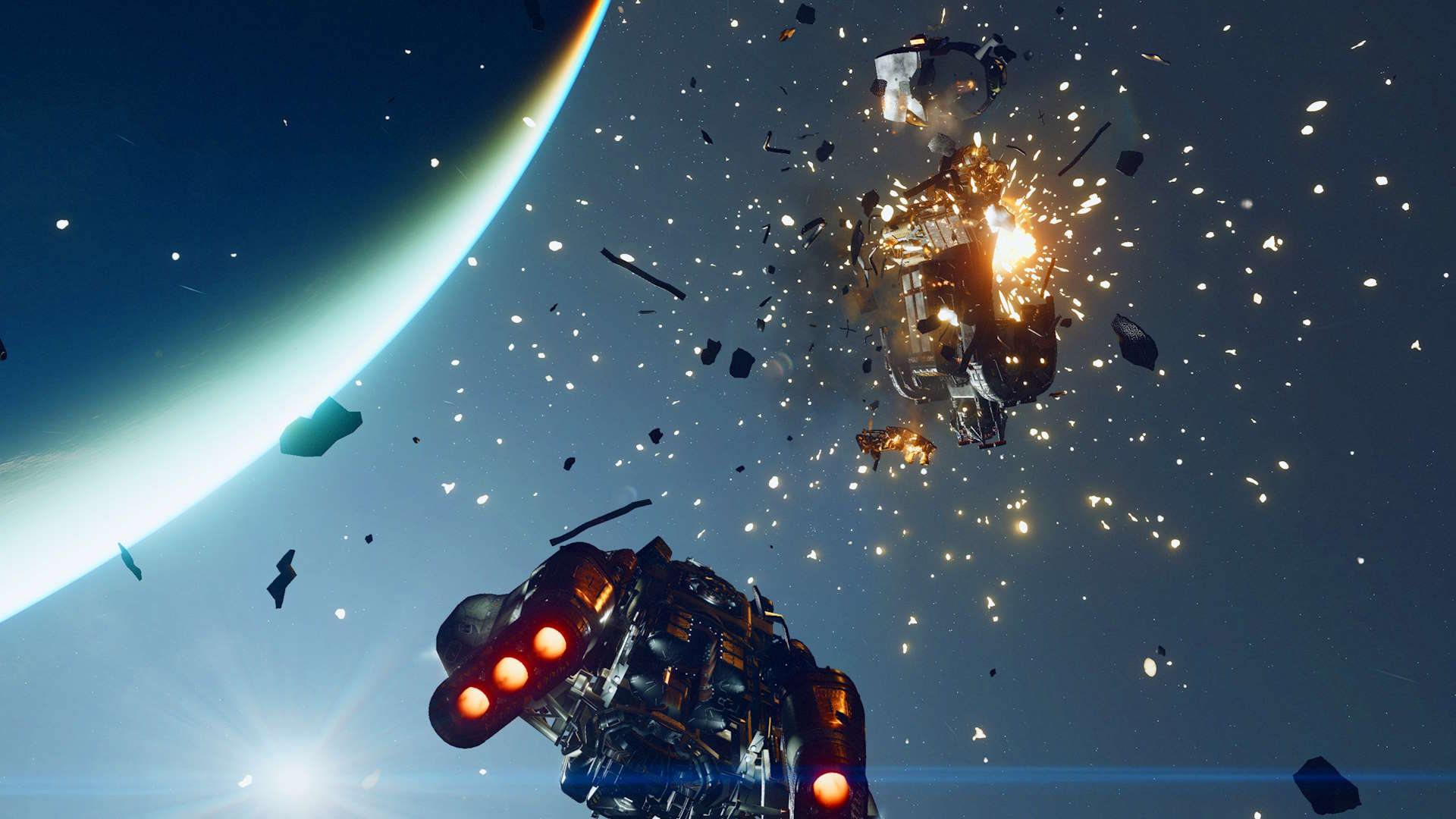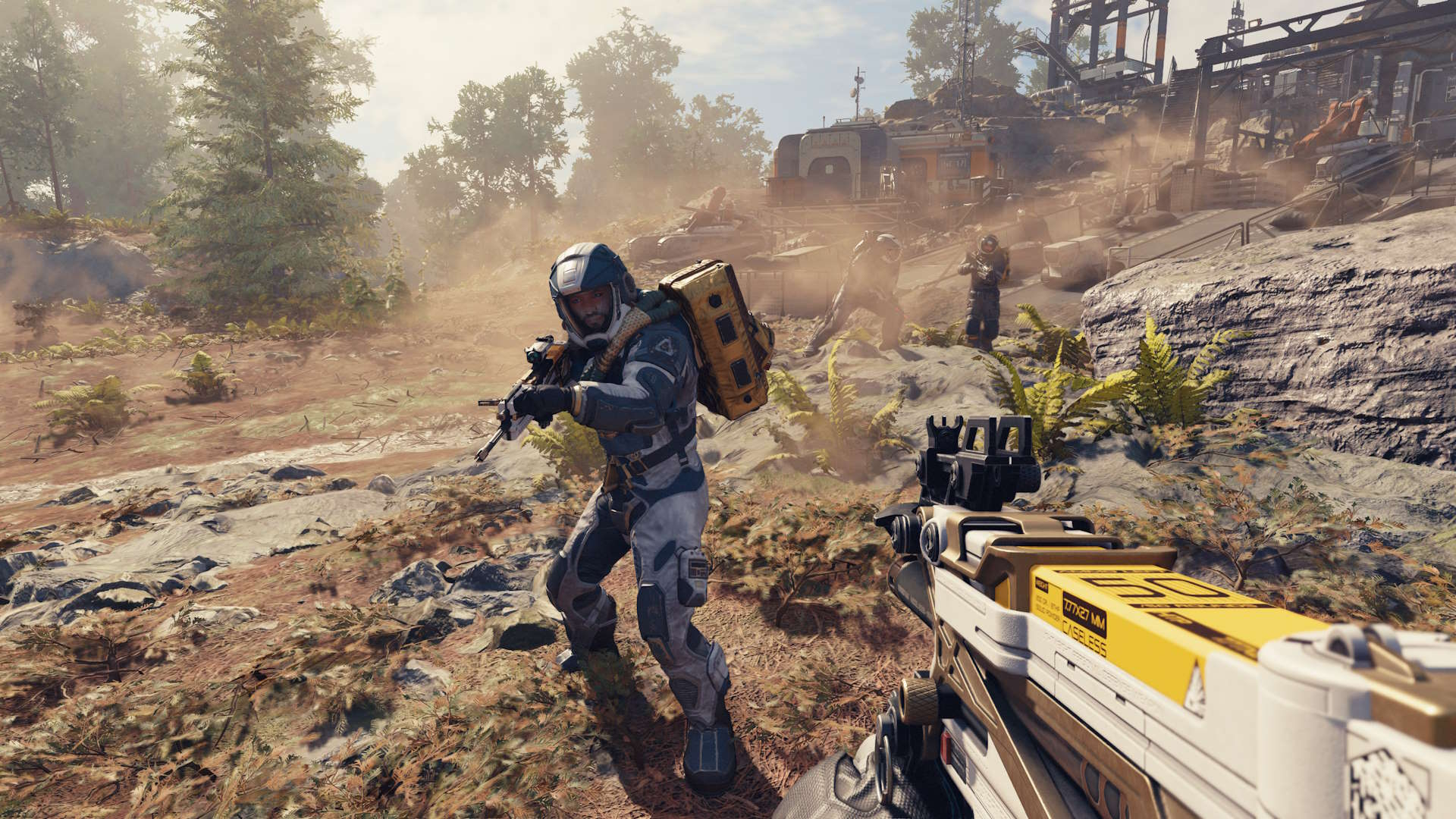Starfield partners with AMD and oh boy, the internet is not happy
Some folk are mourning a hypothetical lack of DLSS support, some expecting more classic Bethesda launch jank, some fear Jedi: Survivor level issues, and some just straight out call for a boycott of AMD.
Update June 30, 2023: We've had a back and forth with representatives from AMD and so far AMD has chosen not to comment on whether Bethesda is completely free to add in support for other upscalers alongside FSR2 in light of its AMD partnership. And we have not had any response at all from Bethesda to a similar request for comment on the situation.
Original story June 27, 2023: AMD has today announced a partnership with Bethesda and Starfield, arguably the most anticipated game of both 2022 and now 2023. And, in all honesty, it's not great timing for the red team considering it's been taking a lot of heat recently for its perceived blocking of rival upscalers from its sponsored titles.
And therefore today's announcement has the internet wondering if this means there's no hope of DLSS being applied to Starfield outside of enterprising modders once the game releases.
The nixxing of rival implementations is an accusation AMD hasn't actually denied, but it has skirted the question when asked whether blocking the likes of DLSS and XeSS are functions of AMD sponsorship. For its part, Nvidia explicitly stated that it "does not, and will not block, restrict, discourage, or hinder developers from implementing competitor technologies in any way."
The reaction to the announcement of the AMD x Starfield partnership has not been particularly positive even on the r/Amd subreddit, often a bastion of support for everything the red team does. A lot of folk are invoking Jedi: Survivor as exemplary of how bad things might be for Starfield's launch. So yeah, things are actually actively hostile out there.
It's actually more measured over on r/nvidia, where there just seems to be an air of resignation to the fact it's going to have to rely on modders to squeeze some extra performance out of the game.
And on Twitter? Well, that's the hot mess of toxicity you might expect. Except from one obviously partisan account anyways.
The biggest gaming news, reviews and hardware deals
Keep up to date with the most important stories and the best deals, as picked by the PC Gamer team.
Nvidia sycophants crying about AMD exclusives is hilarious. Nvidia has plagued the industry for years with exclusivity and anti-competitive tactics.- "the way it's meant to be played" program, Physx, GameWorks, RTX, DLSS2/3, CUDA, Optix, GPP, etc. https://t.co/oH6i3ZoCCOJune 27, 2023
Todd Howard has confirmed that "we have AMD engineers in our code base working on FSR2 image processing and upscaling and it looks incredible." FidelityFX Super Resolution 2.0 (FSR2) is a far more impressive bit of upscaling tech compared with the first generation, and for Radeon gamers you're going to be more than happy.
Having AMD's open tech in the game means that, from launch, everyone has access to a functioning upscaler, and not just a subset of gamers.
If you're rocking an AMD GPU, the preference of FSR2 over rival upscalers is of absolutely no concern to you, because Nvidia's proprietary upscaling methodology means that your AMD graphics cards can't take advantage of DLSS anyway. While if you've got a GeForce GPU you can still enable FSR2 for a frame rate boost.
Having AMD's open tech in the game means that, from launch, everyone has access to a functioning upscaler, and not just a subset of gamers.

The argument is, however, that the actual dev-side implementations of DLSS and FSR2 are so similar that it is often stated as a minor thing to be able to add both upscalers side-by-side. And, indeed, many games do this, even the poster boi for Nvidia GPU tech, Cyberpunk 2077. Nvidia has even created a tool which will allow developers to add XeSS, DLSS, and FSR2 without much logistical burden at all.
The other argument is, for Nvidia GPU users at least, that AMD's FSR2 is less effective than the latest version of Nvidia’s Deep Learning SuperSampling (DLSS) tech.
In fairness to AMD, this isn't just about the PC, and the fact that its hardware is what powers the Xbox Series X/S is important to remember here. It's something Jack Huynh, AMD’s general manager of its computing and graphics group, says in the announcement video.
"These optimizations," says Huynh, "both accelerate performance and enhance the quality of your gameplay using highly multi-threaded code that both Xbox and PC players will get to take advantage of."

But that hasn't stopped people complaining about what it might mean for Starfield in general. There is both a lot of fear about Starfield having a Cyberpunk 2077 launch, and a sort of jaded pleasure in the potential for one of the biggest games of the year releasing in an absolute state.
And given Bethesda's history for a certain level of jank—endearing or otherwise—in its games, there are a lot of folk expecting Starfield's launch to be a bug-ridden mess, most especially on PC.
It's also feared that, given AMD's involvement in the development process, there's unlikely to be a particularly special-looking PC edition. Radeon cards aren't really at the top table of ray tracing effects, and it seems likely that any implementation will be limited at best, as most ray-traced features are on console.
All AMD has to do to kill this mild controversy dead is to come out and officially state that it is not blocking any developers from implementing whatever competitor features it sees fit in partnered games. Whether that's DLSS or Intel's XeSS. We've reached out to AMD for comment and will update if they choose to respond with anything concrete.
We've also reached out to Nvidia for comment, too.

Dave has been gaming since the days of Zaxxon and Lady Bug on the Colecovision, and code books for the Commodore Vic 20 (Death Race 2000!). He built his first gaming PC at the tender age of 16, and finally finished bug-fixing the Cyrix-based system around a year later. When he dropped it out of the window. He first started writing for Official PlayStation Magazine and Xbox World many decades ago, then moved onto PC Format full-time, then PC Gamer, TechRadar, and T3 among others. Now he's back, writing about the nightmarish graphics card market, CPUs with more cores than sense, gaming laptops hotter than the sun, and SSDs more capacious than a Cybertruck.

